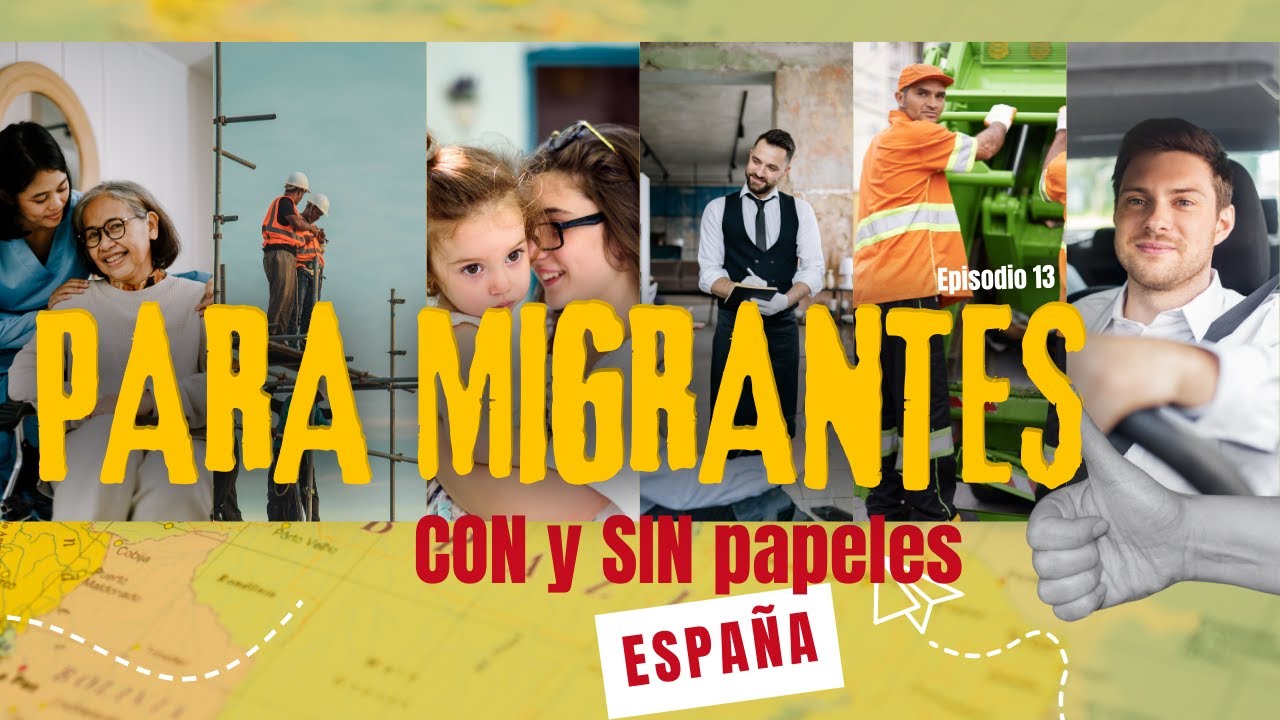🔝 Todo Lo Que Tienes Que Saber Sobre Los Derechos Del Trabajador En España | Tajodido #Migracion
Unleash Your Creative Genius with MuseMind: Your AI-Powered Content Creation Copilot. Try now! 🚀
Embracing the Legal Tapestry
Hola, hola, everyone! Welcome to a brand new episode, where we dive deep into the legal seas with our incredible ally, Diana Piedra Ita. You can find her on Instagram, serving up expert advice on immigration matters. Diana is undeniably the most sought-after companion in the interviews you all clamor for. Because let's face it, when embarking on a new chapter in a foreign land, legal queries become the heartbeat of our journey.
Today, we're unraveling the mysteries surrounding the labor rights of both regular and irregular workers. There's a common misconception that toiling without the proper papers in Spain means forfeiting your labor rights. Well, buckle up, because we're about to challenge that notion.
Bursting the Myth: Rights Unveiled
In the realm of Spanish labor, the holy grail of regulations is the "Estatuto de los Trabajadores" (Statute of Workers). This document isn't just your run-of-the-mill rulebook; it's the sage that dictates not only contract types (leaning heavily towards the coveted indefinite contract) but also the intricate dance of rights, obligations, and dismissal protocols. However, hold your horses, because there's a twist.
Certain sectors, like the industrial and construction realms, flaunt what's known as collective agreements or "convenios colectivos." These agreements, akin to seasoning on a dish, enhance and introduce specific rights and characteristics tailored to these job domains. So, always ask yourself, "Which collective agreement is waltzing through my sector?"
Breaking the Chains: Status and Rights
In Spain, there's a divide between workers with and without papers. But, let's debunk the myth that the law endorses this segregation. Employers might create this differentiation for their own administrative ease, linking it to social security quotas and workplace safety payments. Yet, legally, there's no inherent division in the rights afforded.
Now, envision this: you're a worker, in any profession, with or without papers. How do you ensure your rights mirror those of your documented counterparts? The Estatuto de los Trabajadores is your Bible. However, keep an eye out for collective agreements in your sector, as they could be the secret sauce adding extra flavor to your rights.
The Race Against Time: Renewing Residency Permits
Now, let's talk about the ticking clock of residency permits. Picture this scenario: your work permit is on the verge of expiration, and you're diligently trying to secure that golden renewal appointment. Here's the golden rule—renew it 60 days before it plays hide-and-seek with its expiration date. For those under the community regime, a cool 30 days before the expiration date is your sweet spot. But, no matter your category, you have a 90-day grace period post-expiration to renew without breaking a sweat.
"But what if I forget?" you might ask. Brace yourself; it's a perilous journey. Employers could face severe fines (a minimum of 10,000 euros per undocumented worker), and workers risk finding themselves in the crosshairs of labor inspection. However, fear not; the renewal process isn't rocket science. A professional can handle it seamlessly, sparing you the headache and potential legal conundrums.
Navigating the Storm: Collaborative Residency Permits
Now, let's delve into a fascinating avenue—the collaborative residency permit. Picture this: you've been working diligently, undocumented, for a continuous six-month stretch. You decide it's time to demand your due, not just in rights but in legal recognition. So, you take your employer to the labor inspection, armed with a trove of evidence—signed receipts, company documents bearing your name, even WhatsApp chats documenting your daily grind.
If the labor inspector peers into this crystal ball of proof and sees a consistent working relationship, they might grant you the golden ticket: a residency permit for collaboration. Sure, this might send shivers down the spine of your employer, as they could be slapped with fines. Still, for the compassionate ones who prioritize their workers over potential penalties, it's a risk worth taking.
Demystifying the Fear: Rights Beyond Papers
Now, let's address the elephant in the room—the fear of asserting your rights when you lack the coveted papers. It's a delicate dance, acknowledging the power dynamics with your employer. Communication is key—initiate a conversation, human to human. Discuss your entitlement to vacations, breaks, and other perks. If the message doesn't land, don't despair. The legal route might be your next tango, and rightfully so. Remember, rights are universal, regardless of your administrative status.
In parting, let's shatter the illusion that being paperless means being powerless. In the realm of labor rights, everyone, with or without papers, deserves a seat at the table. So, embrace your rights, dance through the legal maze, and let the symphony of justice play on.
[Musical outro]

Related Recaps
- YOU decide when your work becomes valuable.
- [LIVE] Sons of the Forest Việt Hoá #1 - Sinh Tồn Trên Hòn Đảo Bí Ẩn
- Growth and quality look like two best performing factors of 2023, says Josh Brown
- WIVES - MAURICE SAM, SARIAN MARTIN, DORATHY ANADOR, MICHAEL DAPPA.
- Jimmy and Andy Samberg Perform "Plant Dad" | The Tonight Show Starring Jimmy Fallon